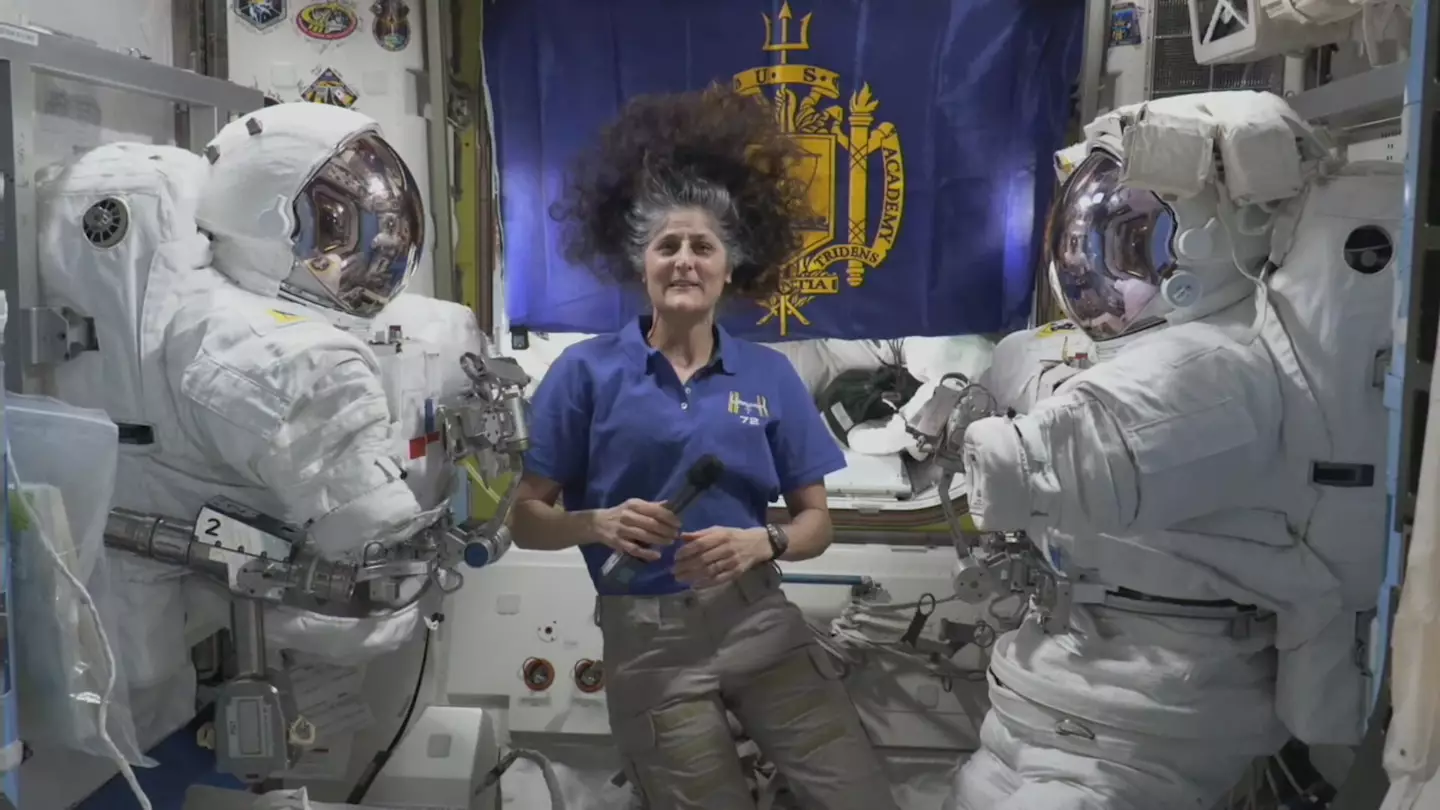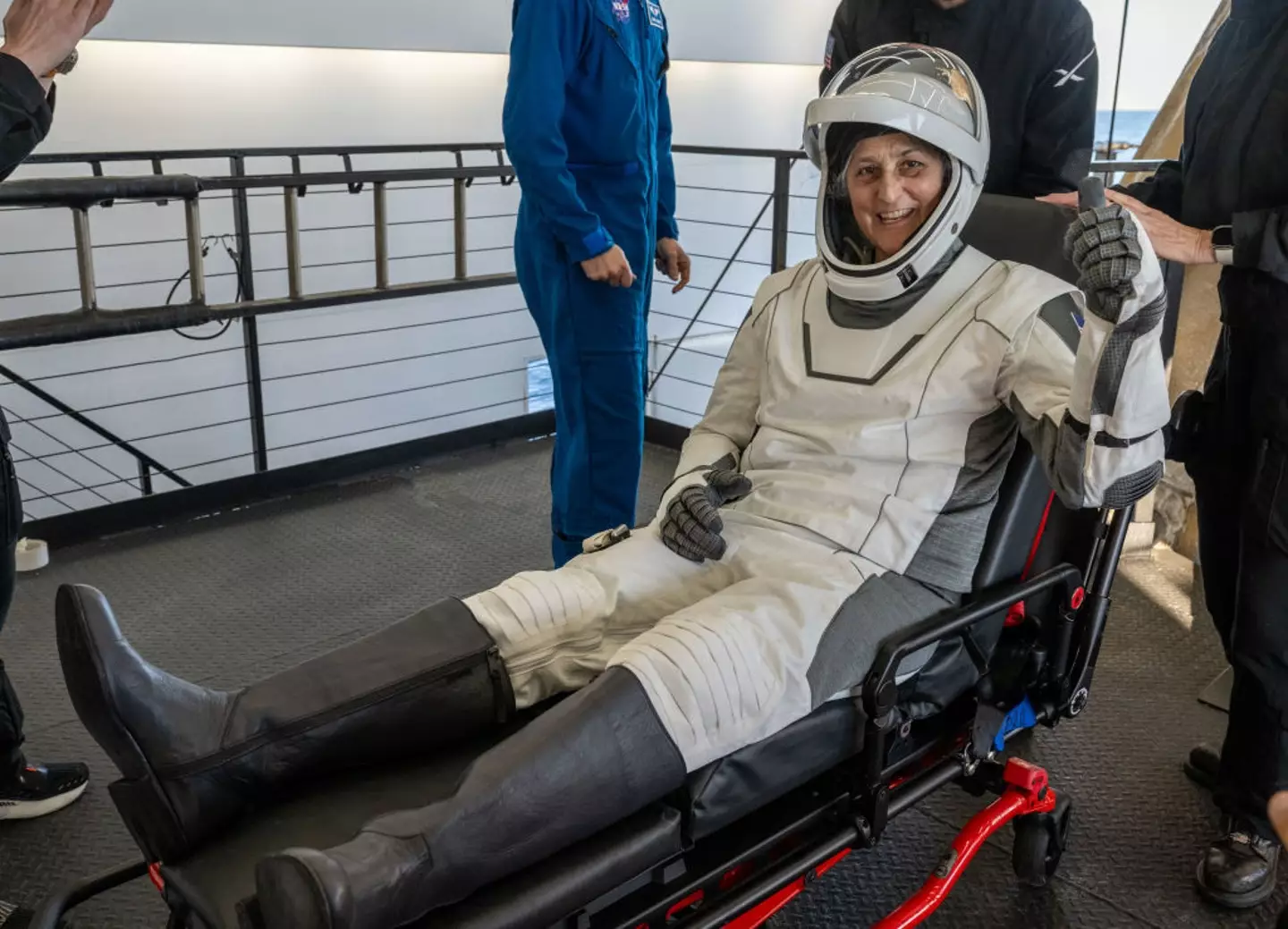
Suni Williams and Butch Wilmore spent a staggering 286 days in space despite only planning on an eight day trip, and one doctor has revealed exactly how long it'll take for their bodies to recover following their return to Earth.
Technical issues with both their Boeing Starliner craft and the SpaceX spaceship that was set to rescue them from the International Space Station (ISS) meant that Williams and Wilmore spent an unbelievably long nine months away from their homes.
While they did manage to conduct some fascinating research and undergo a number of spacewalks that will be on any astronaut's bucket list, they also had to contend with a number of health issues that are expected when you spend that long in low gravity conditions.

Advert
Many became concerned over photos revealed Williams' 'gaunt' appearance, and while NASA assured everyone that both were fine health wise, this was indeed a natural consequence of living on board the ISS.
Low gravity conditions mean that your muscles have to work far less, and even with rigorous daily exercise it's still not enough to stop you from losing muscle mass and running into bone density issues.
That's why both had to be immediately stretchered off to a medical facility following their long-awaited landing off the coast of Florida, and one doctor has revealed exactly how long it'll take before their bodies return to 'normal'.
Speaking to Fox News, Weill Cornell Medicine professor Dr. Christopher Mason indicated: "All of it is, at least on some measures... all transient. Most of it is a response to space flight, and usually in a few weeks they're mostly back to normal. It's the first few days that are the most really dynamic when they get back to Earth."
One former astronaut has added a different perspective though, as while a few weeks might be enough to be 'normal' from a medical perspective, the actual feeling of being back on Earth takes far longer to get used to.

"I remember my first two words when I came down was, 'Gravity sucks'," revealed Jose M. Hernandez, "because your body starts adapting, and you've got to recalibrate your vestibular balance system. It's going to take a couple of months before they feel kind of normal back here on Earth."
Muscle loss is far from the only side effect that they'll have to contend with though, as it's highly likely that they'll have 'baby-like skin' that's hypersensitive towards clothing as they'll be used to it floating above their body while on the ISS.
Additionally, former astronaut Chris Hadfield has revealed that staying in space can even affect how you talk: "Right after I landed, I could feel the weight of my lips and tongue and I had to change how I was talking," Hadfield illustrated. "I hadn't realized that I had learned to talk with a weightless tongue."
What has become clear though, at least in the case of Suni Williams, is that this will be the last time that she has to deal with the rehabilitation period, as she's pointed to the fact that this will likely be her final space mission.
Williams also pointed out while on board the International Space Station that she was trying to remember how to walk again, which shows how drastic the changes astronauts have to deal with that a relatively short period of time away from Earth in the grand scheme of things can have such major ramifications on the basic functions of daily life.
